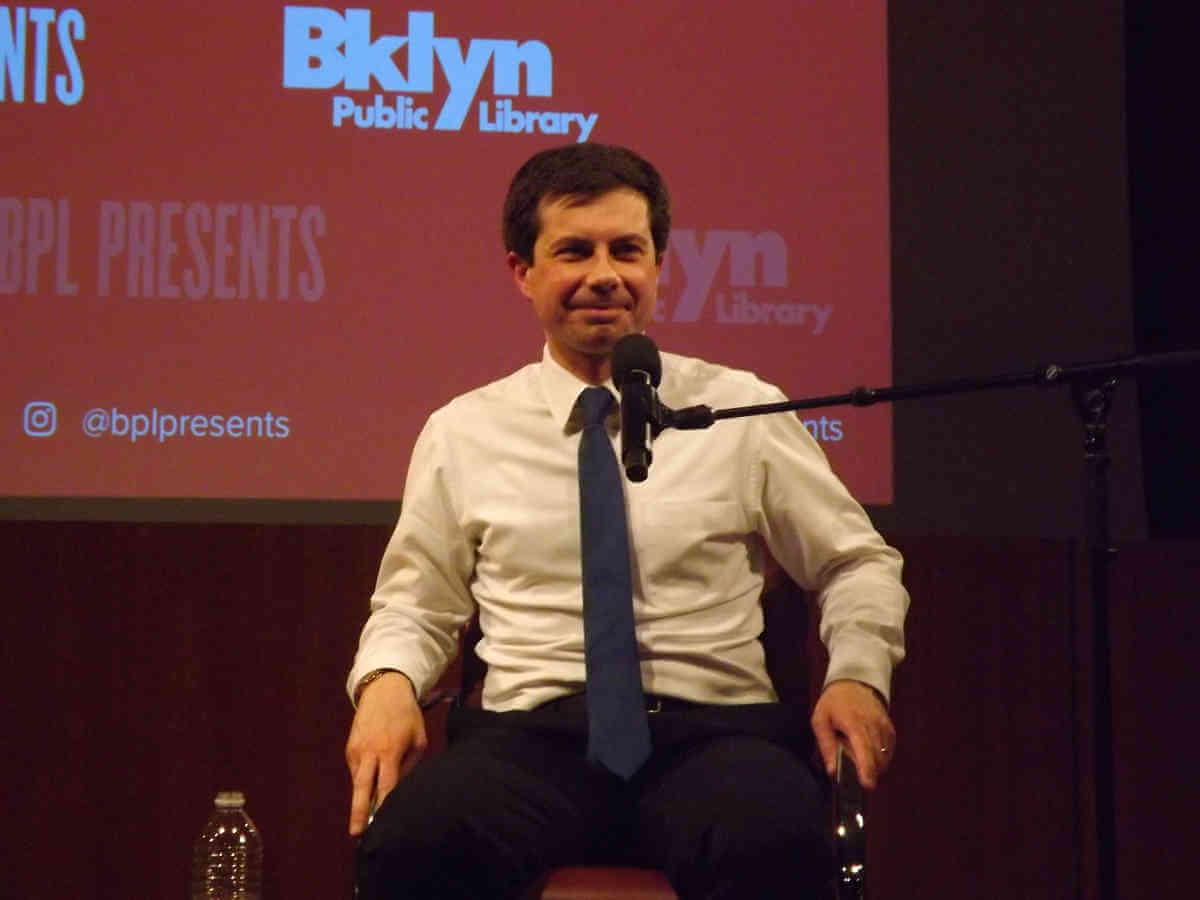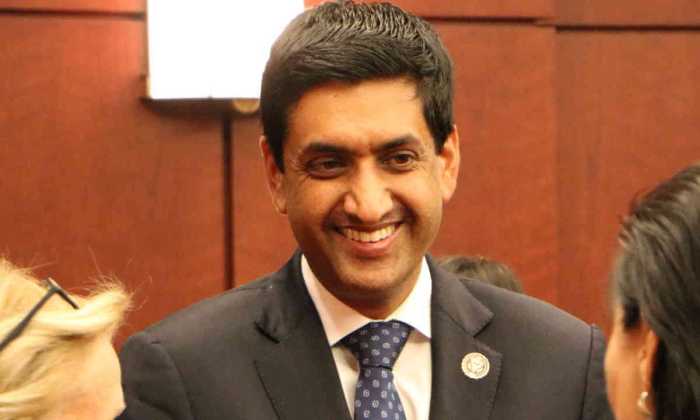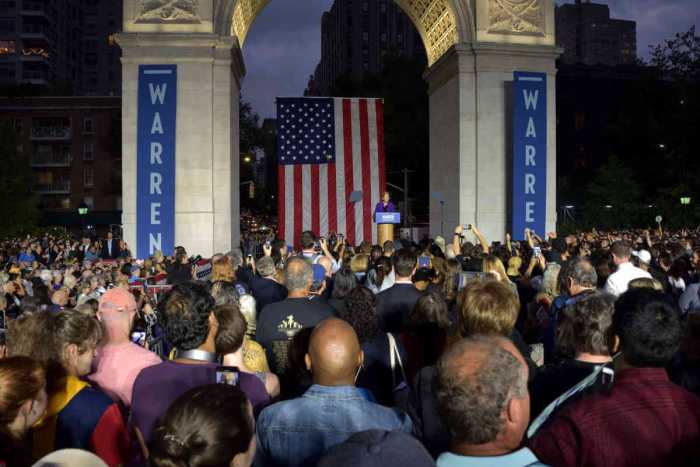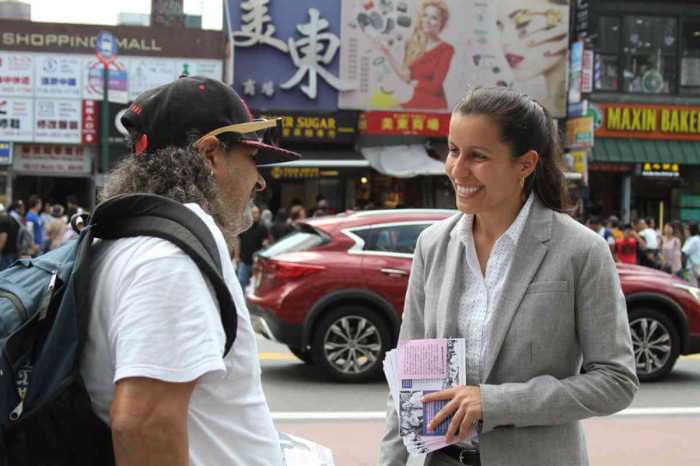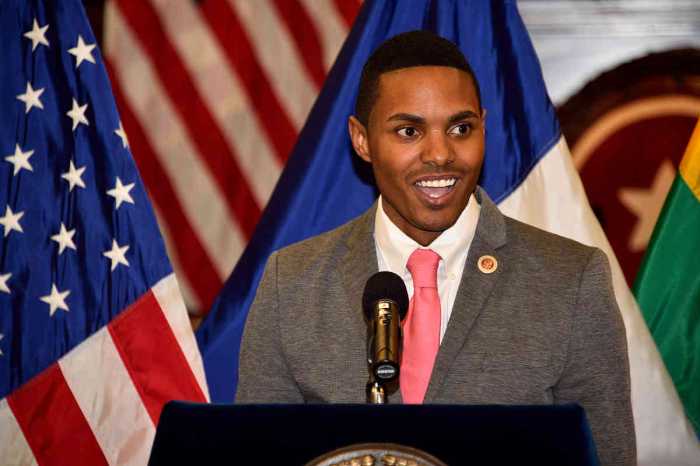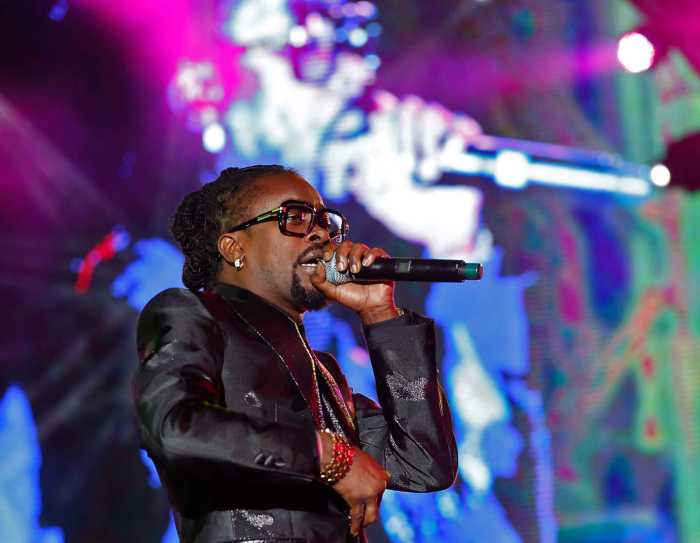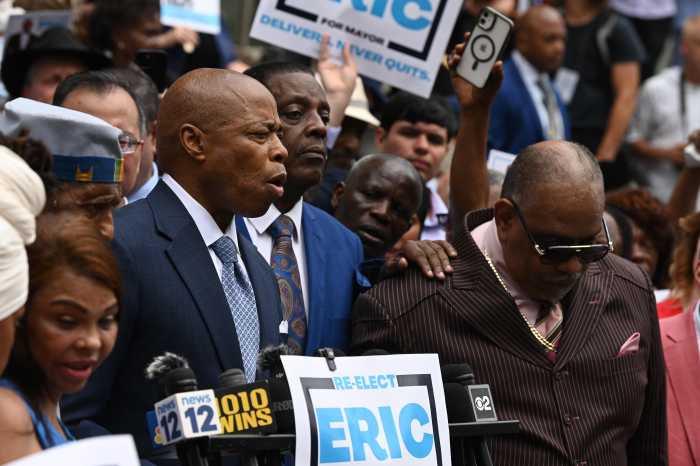Entering to sustained applause at a recent event held at the Brooklyn Public Library, Pete Buttigieg, the mayor of South Bend, Indiana, had left behind his suit jacket, but had not yet rolled up his sleeves. That came later when he left the stage in the library’s Dweck Center to sit at a small table in the lobby and autograph copies of “Shortest Way Home: One Mayor’s Challenge and a Model for America’s Future,” his autobiography, for a standing room only crowd that packed the center.
Buttigieg, 37, is one of 12 Democrats who are seeking that party’s nomination for president. It is a diverse field including African Americans, women, Asian Americans, one Latino, and Buttigieg, who was born and raised in South Bend, part of the “industrial Midwest,” as he calls it, and is openly gay. That crowd of candidates prompted a comment from Bernie Sanders, the US senator from Vermont.
“We have got to look at candidates, you know, not by the color of their skin, not by their sexual orientation or their gender, and not by their age,” Sanders, 77, told Vermont Public Radio on February 19 when he announced the launch of his campaign for the 2020 nomination. “I think we have got to try to move us toward a nondiscriminatory society which looks at people based on their abilities, based on what they stand for.”
Buttigieg, who has assembled an impressive political pedigree, is prepared to respond.
He was first elected mayor in 2011 and is now serving his second term. He developed his political skills working on the 2004 Kerry presidential campaign, the Obama campaign in 2008, and other campaigns. He boosted his profile in 2017 when he ran for chair of the Democratic National Committee, though he withdrew from the race before the 2018 vote. He lost a 2010 race for Indiana state treasurer.
He graduated from Harvard in 2004 and then attended Oxford as a Rhodes Scholar. After graduation, he worked at McKinsey & Company, the consulting firm. And he joined the Naval Reserves, serving as an intelligence officer in Afghanistan.
Were he to win the nomination and the White House, Buttigieg would be the youngest person ever elected to that office. While some might think he is too young, he asserts that his age is a benefit, pointing out that three of the last four presidents were born in 1946.
“One generation has mostly been running most things for a while,” he said on February 18 at the library. “Nothing wrong with that, but I do believe the perspective of different generations is important… My generation provided most of the troops for the conflicts after 9/11. My generation will be dealing with climate change for the rest of our lives. We will be paying the price tag on tax cuts for billionaires. All of these things that are talked about as theoretical… as if they are somebody else’s problem are very personal for anybody my age or younger.”
Buttigieg was blunt when he announced his exploratory committee on January 23.
“I launched a presidential exploratory committee because it is a season for boldness and it is time to focus on the future,” he tweeted that day. “Are you ready to walk away from the politics of the past?”
He promotes his experience as mayor, even making jokes about the technocratic aspects of wastewater treatment, but he also came to understand the importance of leadership.
“By the time I became mayor, I was a management guy, I was a policy guy,” Buttigieg said. “What I realized over time was all the ways in which when you are in an executive role, it’s also a symbolic role. You are a walking symbol of the community that elected you.”
His rationale in seeking the mayoralty, aside from ambition, is that his skills matched what South Bend required.
“You look at the office and what it calls for,” he said. “So what was out there in 2011? [South Bend] needed to bring its youth home, it needed a better model for economic development, and it needed a sense of faith in its future. At the time, running for office at my age was an act of hope in the future… The question now is what the country needs.”
The country needs the Green New Deal, a proposal to address climate change that Buttigieg supports while noting, “It is currently a set of goals, not a fully articulated plan and it is not obvious how we get there… We need to treat climate change like the major emergency that it is.”
Americans of all ages should be allowed to buy into Medicare, the federal government health insurance for people over 65, he said. That could mean that the US would have private healthcare providers, but a large payer setting prices and controlling costs for many consumers.
“I don’t think that private insurance can remain the central way to coverage,” Buttigieg said. “Leaving Americans to the tender mercies of corporations has not worked out well for us.”
And he agreed that the US has to leave Afghanistan. US forces have been deployed there since 2001, following the September 11 attacks on the World Trade Center and the Pentagon.
“The only question is are we going to leave well or are we going to leave poorly?” he said. “What does leaving poorly look like? Basically, it looks like what we are doing now.”
His personal story is probably closer to the experience of most gay men and perhaps less inspiring than some of the coming-out tales that are celebrated in the media. For most of his 20s and early 30s, he was largely in the closet fearing that disclosing that he was gay would “be a career death sentence both as an individual and as a military officer… The sad truth is if I had been given the opportunity, I would have taken a pill to not be gay.”
He eventually decided that he was “wasting my time, and I was wasting the time of some really remarkable women who deserved better than to go on dates with a guy who couldn’t admit he was gay.”
In 2015, just before he ran his second race for mayor, he came out in an op-ed piece in the South Bend Tribune. He won 80 percent of the vote in that second race. Buttigieg married Chasten Glezman, his husband, in 2018.
“The honest answer was that I was running down the clock or maybe there was some chance that somehow I wasn’t as gay as it seemed like I was,” he said.
Buttigieg was interviewed by Frank Bruni, the New York Times columnist.

